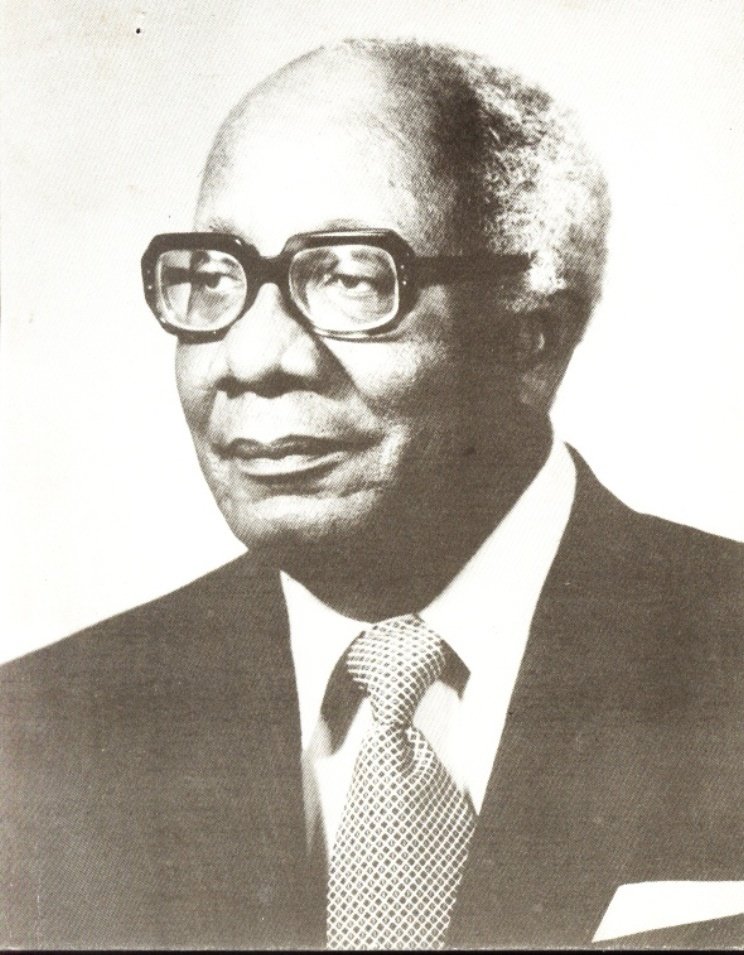
Explore the life and legacy of William Ofori Atta—Ghana’s legal luminary, political activist, and one of the Big Six who championed the nation’s independence and democratic foundations.
Introduction
William Ofori Atta, affectionately known as “Paa Willie,” stands as a monumental figure in Ghana’s journey toward independence and democratic governance. As a distinguished lawyer, political activist, and statesman, his contributions were pivotal in shaping the nation’s legal and political landscape. From his role as a member of the Big Six to his unwavering advocacy for self-governance, Ofori Atta’s legacy is deeply woven into the fabric of Ghana’s history.
Early Life and Education
Born on October 10, 1910, in Kibi, Gold Coast, William Ofori Atta hailed from a prominent royal family. He was the son of Nana Sir Ofori Atta I, the Okyenhene (paramount chief) of Akyem Abuakwa, who was instrumental in advocating for African representation in colonial governance. William’s early education at Mfantsipim School and Achimota School laid the foundation for a lifelong pursuit of knowledge. He furthered his studies at Queens’ College, Cambridge, where he earned a law degree, subsequently being called to the Bar at the Inner Temple in London.
Legal Career and Political Activism
Upon returning to the Gold Coast, Ofori Atta established a successful legal practice in Accra. His legal acumen and commitment to justice quickly earned him respect within the legal community. In 1947, he co-founded the United Gold Coast Convention (UGCC), the first political party in the Gold Coast, aiming to achieve self-governance. His fiery oratory and fierce opposition to colonial rule earned him the nickname “Paa Willie.”
The Big Six and the 1948 Accra Riots
In February 1948, protests erupted in Accra following the killing of ex-servicemen who were demanding better conditions from the colonial government. These events, known as the Accra Riots, were a turning point in Ghana’s independence struggle. Ofori Atta, along with five other UGCC leaders—later referred to as the Big Six—was arrested by British authorities for allegedly inciting the riots. Though they were released without charge, this moment solidified their status as symbols of resistance and courage.
Political Career and Governance
During the Second Republic, Ofori Atta served as a Member of Parliament representing Akwatia. His roles included Minister for Education, Culture and Sports, and later, Minister for Foreign Affairs in Dr. Busia’s Progress Party government. His influence extended beyond political chambers as he actively participated in the People’s Movement for Freedom and Justice (PMFJ), opposing the ‘Union Government’ concept by General I. K. Acheampong. In the 1979 Ghanaian presidential election, he secured third place with 17.41% of the popular vote.
Personal Life and Faith
In his later years, Ofori Atta found solace in his faith, becoming a devout Christian. He co-founded the Accra Chapel Trust, now the Korle-Bu Community Chapel, an independent evangelical church situated at the Korle Bu Teaching Hospital in Accra. His commitment to faith was evident when he delivered the J. B. Danquah Memorial Lectures in 1985, discussing the topic “Ghana, A Nation in Crisis.”
Legacy and Honors
William Ofori Atta’s contributions to Ghana’s legal and political systems have left an enduring legacy. His commitment to justice, democracy, and the rule of law set standards for future generations. His name is immortalized in Ghanaian history, with streets, schools, and public institutions bearing his name as a tribute to his contributions. Additionally, the William Ofori-Atta Memorial Lectures were established in his honor, ensuring that his contributions and ideals continue to inspire future generations.
Conclusion
William Ofori Atta’s life was characterized by unwavering dedication to justice, democracy, and national development. His roles as a legal luminary, political pioneer, and statesman were instrumental in shaping modern Ghana. His legacy continues to inspire, reminding us of the profound impact one individual’s commitment to national service can have on a country’s destiny.
FAQs
Q1: What were William Ofori Atta’s major contributions to Ghana?
A1: He co-founded the UGCC, served as a legal advocate, was a member of the Big Six, and held ministerial positions, playing key roles in Ghana’s legal and political development.
Q2: What is the significance of the Big Six in Ghana’s history?
A2: The Big Six were leaders of the UGCC who were instrumental in Ghana’s struggle for independence from British colonial rule.
Q3: How did William Ofori Atta’s legal career influence his political roles?
A3: His legal expertise and commitment to justice informed his approach to governance, emphasizing the rule of law and constitutionalism.
Q4: What led to the end of William Ofori Atta’s political career?
A4: He passed away on July 14, 1988, marking the end of his political and legal contributions to Ghana.
Q5: How is William Ofori Atta remembered today?
A5: He is remembered as a founding father of Ghana, with his contributions to law and governance continuing to influence the nation’s democratic principles.
RECOMMENDED ARTICLES
- Homowo Festival: Celebrating Ga Heritage and Ghanaian Harvest Traditions
- Free Senior High School Policy in Ghana: Access, Impact, and Future Prospects
- Akan Day Names: Identity in Every Birth
- gologo-festival-sacred-celebration-upper-east
USEFUL LINKS
